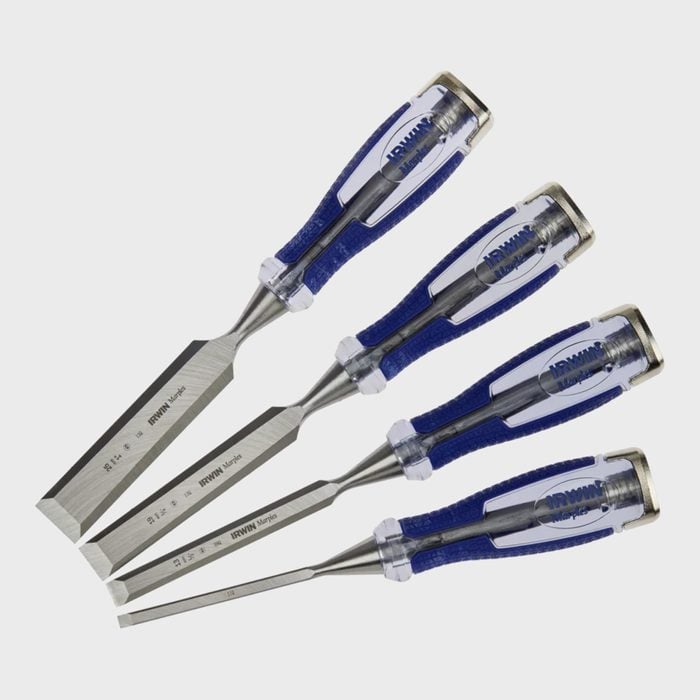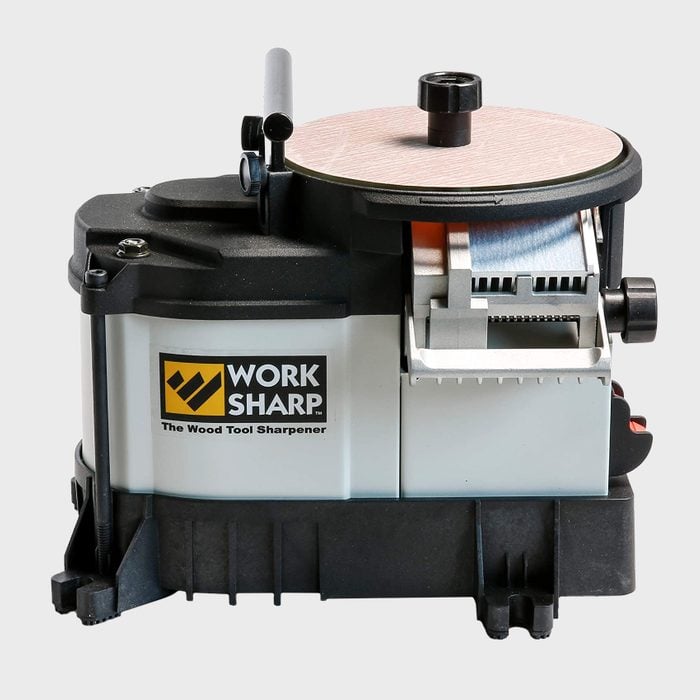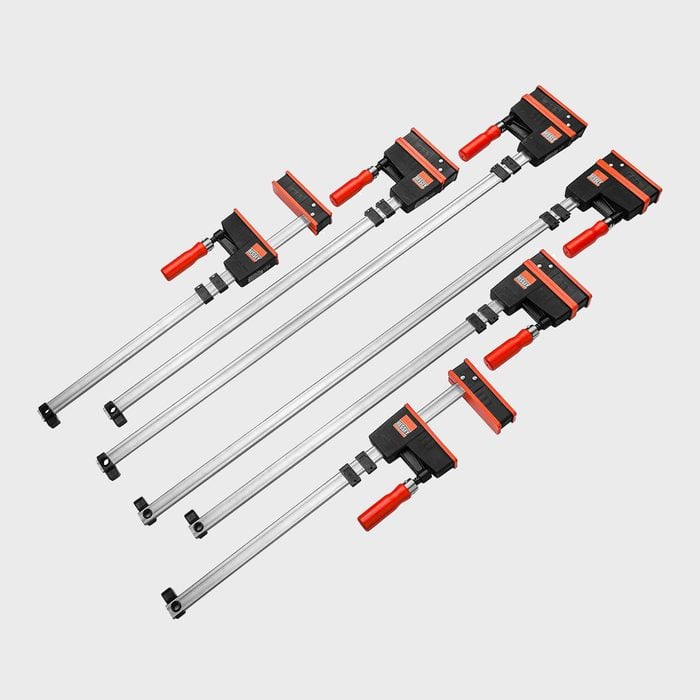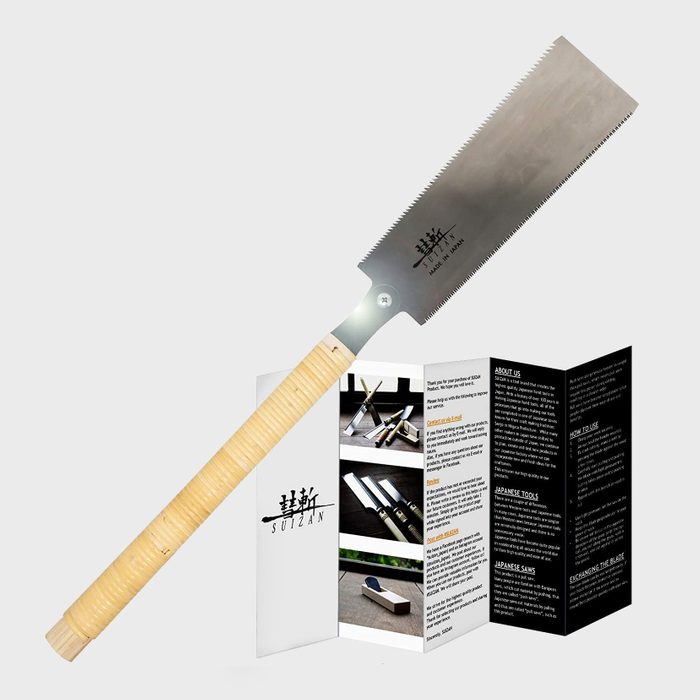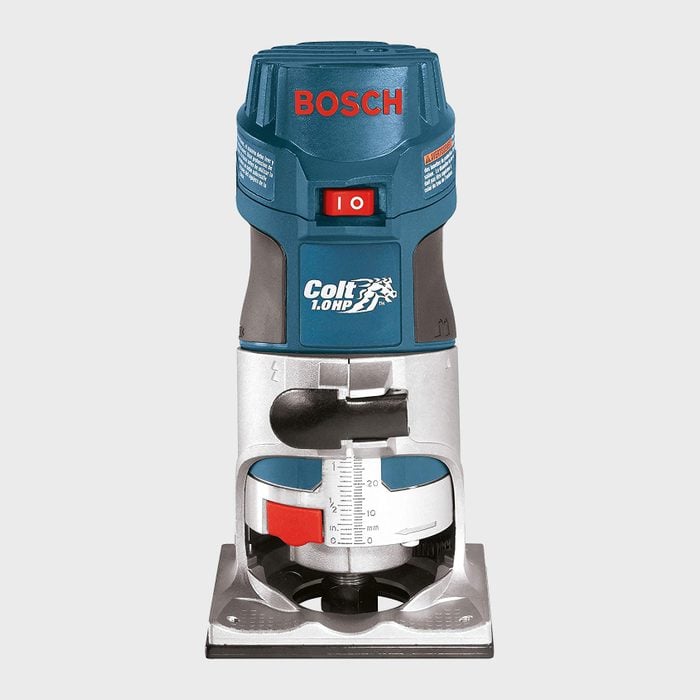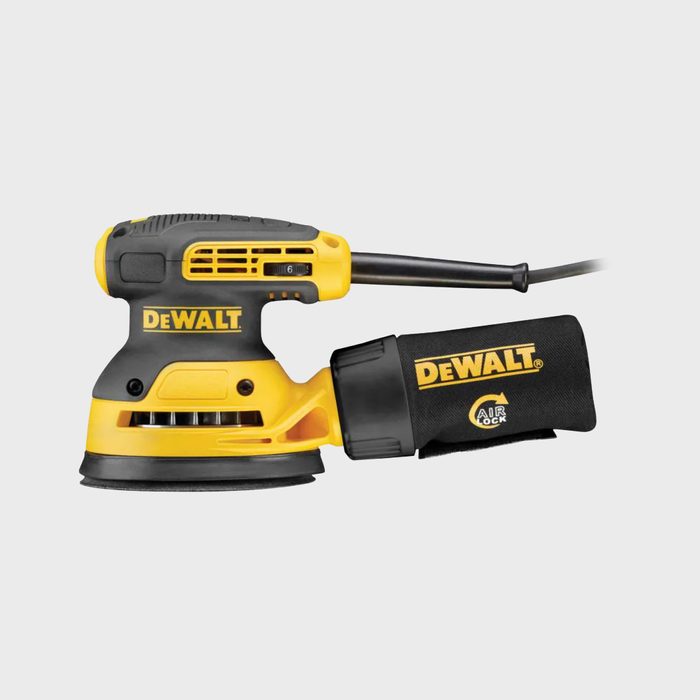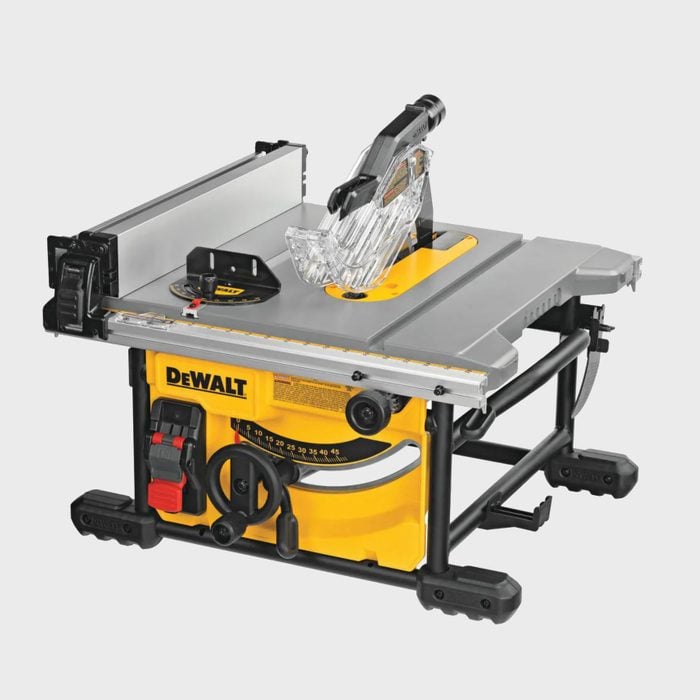Combination Square
Square woodworking joints are fundamental, and a combination square is an indispensable tool for marking joints. It’s great for laying out joints, checking jointed edges for square or checking the depth of a mortise. The capability to measure 45 degrees makes marking corners on boxes or picture frames a breeze.
While available in four-, six- and 12-inch versions, the 12-inch version is the way to go. It’s great for marking wood joints and it measures small cabinets for square. The 12-inch Irwin is a less expensive version of the professional grade Starrett for one-eighth the price.
Block Plane
A block plane shaves tiny, clean wood shavings for fine-tuning wood or joinery. Reach for a block plane instead of sandpaper. Small enough to carry in your pocket or apron, the block plane is perfect for chamfering, (gently rounding over) the edges of a tabletop, trimming edge banding or fine-tuning wooden drawer slides. The Stanley six-inch low angle block plane is simple to use with a knurled knob to raise and lower the blade for perfect slicing.
Chisel Set
Most people don’t know, but most woodworking requires careful chisel work. An array of sharp chisels is essential for cleaning out mortises, leveling a groove or paring the shoulders of a tenon for a tight fit. Chisels in a wide range of sizes like this set from Irwin/Marples, is great for starters. These come with a fully forged core that can withstand heavy work but also feel good in your hand for delicate work.
Jigsaw
When you need to cut curves, the best tool for the job is a jigsaw. Blades available for wood, metal and plastic are inexpensive and easy to replace. Most jigsaws, like the Bosch JS260 Top-Handle Jigsaw, have a tool-less changing mechanism when the blade becomes dull. And what’s great is, a jigsaw is safe and not intimidating. It’s light, quiet, has a comfortable handle and doesn’t kick back like tools with circular blades. With some training and patience, the jigsaw is also surprisingly adept at cutting straight lines.
Sharpening System
Dull planes and chisels don’t belong in your shop. Even brand new, high-quality blades need a tuneup before they’re ready to use! Sharpening stones and diamond whetstones are great affordable options, but what you save in money you may give up in time because mastering these sharpening techniques takes patience. Systems like the Worksharp 3000, for any blade under two inches, is a great option. Spinning cool and slow at 580 RPM, the Worksharp won’t overheat blades and is extremely consistent at producing razor-sharp tools.
Clamps
There’s an old woodworkers’ refrain: You can never have too many clamps, and to my ears this rings true. Clamps are seldom used alone, and buying them in sets is considerably less expensive. This set of six Bessey Clamps is a great place to start, and covers most projects under 36 inches. With padded, parallel jaws these clamps provide 900 lbs. of pressure and help keep projects square.
Japanese Handsaw
Designed to cut with a pull stroke, a Japanese hand saw is easy to use. Available in a number of configurations for different types of cuts, all boast extremely thin (thus efficient) blades. Furthermore, all of these blades are replaceable, so when the blade becomes dull or bent, a new blade is available at one-half the cost of the original saw. The Dozuki with it’s stiffening rib is perfect for cutting joinery like dovetails. The Ryoba double-edge flush-cut saw has a blade for ripping on one side and a blade for crosscuts on the other. Both affordable saws have a place in the beginner shop.
Drill/Driver Combo
This drill/driver combo belongs in every woodworking tool kit. Think of these as support tools, not for making joinery but for screwing in drawer slides, making a quick jig or fastening a tabletop. And before the beginner splurges on a stationary drill press, a decent drill can do so many smaller drilling and hole-boring tasks.
I like a combination kit instead of a single tools because the need to predrill is common; use the drill for the holes and the driver for screwing in the fastener. Makita offers a 18V combo with tons of power, and this smaller, lightweight Bosch set is perfect for getting into tight spaces.
Palm Router
Routers spin bits at high RPM to create grooves or profiles in woodworking projects. While full-size three-horsepower routers were the only tools available for a long time, the palm router does most of the same tasks at a fraction of the cost and weight. A palm router can be comfortably operated with one hand. Many operations, like mortising a hinge on a jewelry box or rounding over the edge of a table leg, don’t require a full-size router. A palm router, like the Bosch Colt is available standard or in a set with an additional plunge base.
Random Orbit Sander
Sanding a woodworking project removes rough tool and saw blade marks and smooths the surface for stain or a protective topcoat. This task can be done by hand, but using a random orbit sander is much more efficient. Round abrasive discs fasten to the sander with a mildly sticky adhesive or hook-and-loop fasteners. It’s easy to switch between different sanding grits. The DeWalt five-inch sander with hook-and-loop fasteners is perfect for small to medium projects. For cabinets or tabletops, a tool like this six-inch Metabo has 40 percent more sanding area for more efficient sanding.
Portable Tablesaw
Woodworking requires making straight and square cuts. No tool makes this easier than a table saw. Much smaller and more affordable than a cabinet-size table saw, the Dewalt 15A table saw with a 8-1/4-inch blade is perfect for the beginner woodworker. Long parallel cuts are made against the fence and crosscuts are made using the miter gauge. Portable table saws are compact and lightweight, therefore easily stowed away when not in use.



